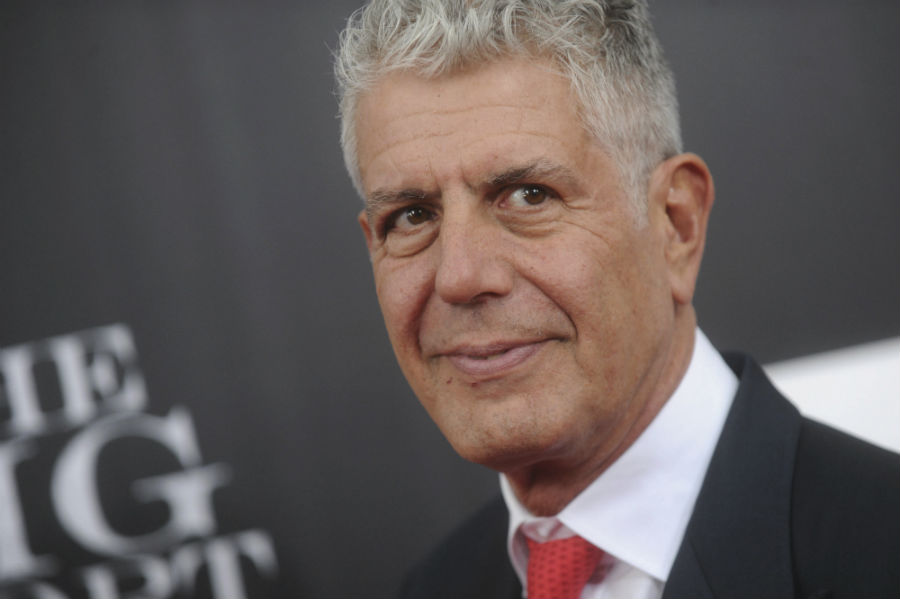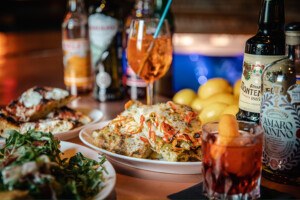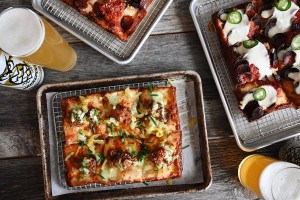Anthony Bourdain, Who Loved Cape Cod, Found Dead at 61
The celebrity chef and travel muse inspired a generation of cooks, chefs, and writers. His culinary career began in Provincetown.

Anthony Bourdain was found dead this morning at age 61. / Photo via AP / Dennis Van Tine/STAR MAX/IPx
This morning, the world learned that Anthony Bourdain was dead at 61 from an apparent suicide.
The beloved, celebrity chef elevated the status of kitchen laborers with his 2000 memoir, Kitchen Confidential: Adventures in the Culinary Underbelly. Bourdain wrote vividly about the intense and challenging world of being a line cook; his confessional was both proudly boastful of his exploits and “the noble toil” of the business, and sharply critical of its culture.
The book (and Bourdain’s ensuing celebrity status) was many Americans’ first behind-the-scenes look at the industry, and it helped set the course for this generation of aspiring chefs, food bloggers, and even restaurant regulars.
It also did not sugarcoat the mental health challenges the industry is rife with, including drug use, drinking, and addiction.
Bourdain went on to network television, notably with the Travel Channel’s No Reservations, and CNN’s Parts Unknown, where he traveled the world not just sampling foods, but also acting as a friendly and generous tourist who wanted to experience the culture of the places he visited.
His storytelling skills and charm opened up the world to his fans, as Bourdain curiously visited places food media had not, before then, appeared to consider worthy destinations. He journeyed to places like Beirut, to Libya, the Mississippi Delta, Punjab, Jamaica, to Vietnam with sitting President Barack Obama, to Peru, and beyond. Bourdain was filming a new episode of Parts Unknown in France when he died, CNN reported.
Recently, he had been a prominent figure in the #MeToo movement, in part because his girlfriend, Asia Argento, was among the first actresses to speak out about Harvey Weinstein. But Bourdain also grappled with what he might have contributed to the negative environment.
“I think the record will show that I have been casually cruel to famous women who I’ve never met,” he told Boston magazine lifestyle editor Abby Bielagus when he was here in Boston this past November. “I think about some of the things I’ve said about Paula Deen, for example, and I wouldn’t do that now… I’ve crossed the line, I have. I grew up with a good vocabulary and I have used it recklessly at times for the short amusement of the people around me.”
He added, “One of the things that I’ve become aware of is how completely ignorant I am to people’s private pain. You can never know what kind of pain or shame people are walking around with.”
Bourdain also wrestled with what fault his memoir might have, telling Slate last year, “I’ve had to ask myself, and I have been for some time, ‘To what extent in that book did I provide validation to meatheads?'”
Bourdain started his culinary career in 1970s Provincetown. It was a fun and formative time for the young cook, he recalled in a 2014 episode of Parts Unknown where he visited Massachusetts. He’d start his day on the beach, “then work all night, drinking, getting high, drilling out food,” Bourdain said. “Then you were still an essential part of the economy.”
Bourdain credited the Cape Cod community for helping him set his values in the industry. “Being in Provincetown when I was 17… it was predominantly gay, as it still is,” Bourdain told Boston.
“I think of the people I lived with and worked with and who befriended me then, whatever value system I learned then informed what came later. That’s where it all started for me. Those were the kitchens that formed my expectations. I thought it was going to be like that forever.”
Bourdain discovered Azorean cuisine in Massachusetts, and loved “the old-school stuff like great chowder, a piece of grilled bluefish, quahogs, steamers.”
The Boston chef community was incredibly inspired by Tony Bourdain.
Lauren Friel, a writer and local wine professional, has an interview series on ChefsFeed about mental health in the restaurant industry.
“We need to stop being shocked and start being honest” about the rampant problem, Friel wrote this morning on Instagram. “Bourdain was open about his history of drug abuse. The shit that drives addiction doesn’t just go away when you get clean, or when you get rich, or when you get famous… And right now I’m really sad, because this guy did a lot for my passion and education in this industry when I was a young gun who couldn’t afford to eat and see and understand everything I wanted to.”
If you or someone you know is having suicidal thoughts or just needs someone to talk to, please call the National Suicide Prevention Lifeline at 1-800-273-TALK, or text 741741. Check in with your friends—even the most vivacious, confident, well-traveled, beloved ones.
Rest in peace, Anthony Bourdain. Thank you for the inspiration.



